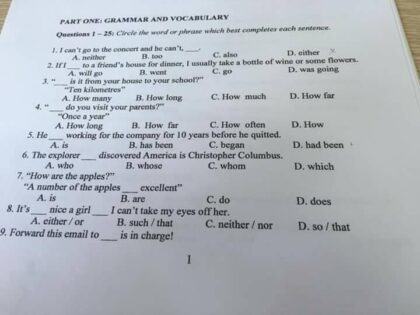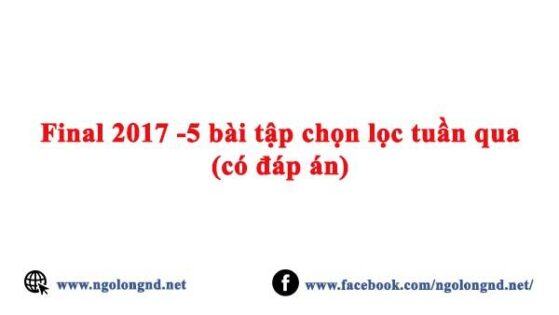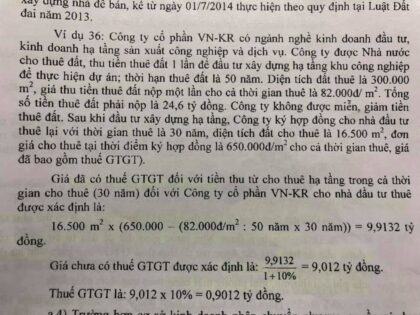Dạng Đề Tiếng Anh Cơ Bản Ôn Thi Công Chức, Viên Chức Mới 2022. Sau đây là một số dạng đề tiếng Anh cơ bản ôn thi công chức, viên chức mà ngolongnd.net tổng hợp để các bạn có thể tham khảo làm tài liệu ôn thi kho bạc, thuế… trong thời gian sắp tới.
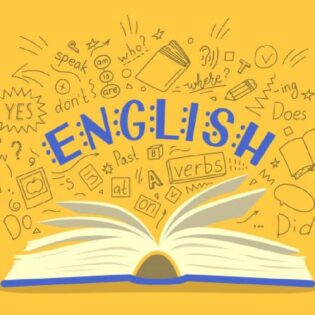
Nội dung chính:
Đề Tiếng Anh Cơ Bản Ôn Thi Công Chức, Viên Chức Mới 2022
ĐỀ SỐ 1
1- Mr. Hung and his wife are doctors.
2- Her family were so poor that she could not go to school.
3- Poor Jimmy! He was robbed all of his money.
4- What’s the time? – Half past four.
5- It is an easy question, isn’t it?
6- Listen! Somebody’s phone is ringing.
7- Where did you by that hat with a nice color?
8- Nhung chose a new pair of shoes which would match her dress.
9- Don’t give up hope. You’re still young.
10- My house is not as rich as his.
11- That heavy bag is theirs. Give it to them.
12- How do you spell this word?
13- We are not used to living in a cold climate.
14- How much money does she usually spend on shopping?
15- Do you like music? – Yes, I do.
16- He’s listening to the radio at the moment.
17- It is not very easy for Lan to live by herself.
18- Why do you go to the bank, Mai? – To draw a cheque.
19- 2008 Olympic Games were held in Beijing, the capital of China.
20- Do you know their house.
21- What (you/ do) are you doing Khoa? I’m drawing, mom.
22- We really enjoy (camp) going to camp.
23- Don’t forget (lock) to lock the door!
24- Have you received the letter that I (send) sent you?
25- This house it quite a lot (big) bigger than that one.
26- This is the most (bore) boring film I’ve ever seen.
27- What (you/ do) did you do at home last weekend?
28- No one (be/ watch) was watching the television, so I switched it off.
29- My sister wants (become) to become an actress in the future.
30- They have got two lovely (child) children.
31- Would you mind (make) making some tea for me, Lan?
32- Lan isn’t here. She (just/ go) has just gone out.
33- We (have/ lunch) were having lunch at home when my uncle called.
34- Although he seemed (friend) friendly but I didn’t like him.
35- We (not met) haven’t met each other since we left school.
* Đoạn văn: LEARNING A NEW LANGUAGE
Most people think that the older you get, the harder it is to learn a new language. That is, they believe that children learn more easily efficiently than adults. Thus, at some point in our lives, maybe around age 12 or 13; we lost the ability to learn well. Is this idea fact or myth?
Is it true that children learn a foreign language more efficiently than adults? On the contrary, research studies suggest that the opposite may be true. A report about Americans learning Russian, showed a direct improvement of ability over the age. Range tested, that is, the ability to learn increased as the age increased, from childhood to adulthood.
There are several possible explanations for these findings. For one thing, adults know more about the world and therefore are able to understand meanings more easily than children. Moreover, adult can you use logical thinking to help themselves see patterns in the language, Finally, adult have more self-discipline than children.
All in all, it seems that the common idea that children are better language learners than adults may not be fact, but myth, the main idea this short talk was that.
36- According to the passage, adults leam a foreign language more efficiently than chidren. 37- People think that, when you are older, learming a new language is harder.
38- The word “myth” in paragraph 1 has nearest meaning to untruth.
39- In what paragraph, there is an example about learning a language? – Paragraph 2. 40- The ability to leam a language increased when people are older.
41- How do children know about the world? – Less.
42- Who can think logically? – Adults.
43- Which of the following is TRUE about foreign language? – can be leam more easily.
44- In leaming, what does adults have more than children? – self-discipline.
45- All in all, the idea that children are better language leamers may be a myth.
Đề số 2
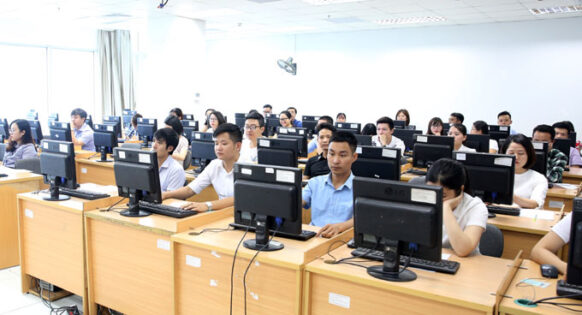
1- How long does it take you to get to school?
2- How much money does she usually spend on shopping?
3- Keep out the grass. Do not walk on them!
4- I have a lesson on Tuesday.
5- Where did you find all those books?
6- He cannot cook very well.
7- Would you like some more wine? – Yes, piease, just a little.
8- He wants to win a gold medal in the Olympic Beijing 2008.
9- Let’s go and see what he is doing.
10- That parcel is too heavy for her to collect.
11- Hold the phone and wait for a second! I’m putting you through.
12- I haven’t got any sisters or brothers.
13- Poor Jimmy! He was robbed of all his money.
14- Is that Loan’s husband? No. She is single.
15- There isn’t any salt in the jar.
16- They told me that you are lazy.
17-
Where is the bookshop? – Ask the man who’s standing over there.
18- Millions bottle of beer are drunk every year throughout the world.
19- I’m sorry for coming late yesterday.- Oh, don’t worry!
20- Which of the players is the winner? – None of them is.
21- Although he seemed (friend) friendly, but I didn’t like him.
22- If I’d known it (soon) sooner, I would have tried to help.
23- Have you received the letter that I (send) sent you?
24- This car is a lot (cheap) cheaper than the one that I drive.
25- I haven’t got (stamp) any stamps. Have you got any?
26- Mark promised (go) to go shopping with me.
27- It was kind of you (help) to help us.
28- Lan speaks English (good) better than her brother.
29-
I tried to do that, but I (can/ not) couldn’t.
30- This box (not/ heavy) isn’t as heavy as that one.
31- Lewis is (home) homeless. He has nowhere to live.
32-
She (not/ dance) can’t dance, but she can sing.
33- You (study) should study hard if you want to pass the exam.
34- We really enjoy (camp) going to camp.
35- They have got two lovely (children) children.
* Đoạn văn: BEIJING
Beijing, also known as Peking, is the capital and the second largest city of China. The total area of Beijing is approximately 16,800 square kilometers, and has over 7.23 million people, 3 million of which are temporary residents. Beijing’s permanent residents are from all of the different ethnic groups found in China with the Han’s comprising over 96% of the population. Mandarin Chinese is the language spoken in Beijing, with Beijing’s dialect being the standard form of Mandarin.
Beijing has four definite seasons. Summer and winter are the two longest seasons with fall and spring being the shortest. The climate varies according to the season with autumn being the most pleasant time to visit. Autumn is usually clear with cool temperatures, while winter is dry and, at times, bitterly cold with temperatures dropping below 5 degrees F (-150C). Spring is usually dry but very windy, while the summer is rainy and hot with temperatures soaring above 100 degrees F (380C).
Beijing is recognized as the political, educational; and cultural center of the People’s Republic of China, while Shanghai and Hong Kong predominate in economic fields. Beijing is the city successfully hosted the 2008 Olympic Games.
36- Peking is largest city of China.
37-
The total area of Beijing is over 16 thousand square kilometers.
38- Over 96% of the population of Beijing comprise of the Han’s.
39- What is the standard language used in Beijing? – Beijing’s dialect.
40- What are the shortest seasons in Beijing? – spring and fall.
41- In Beijing, which season is the coldest? – winter.
42- The phrase “bitterly cold” in paragraph 2 is closet meaning to: very cold.
43- Name the best season for visiting Beijing? – autumn.
44- What are Beijing most recognized for? – Political, educational, and cultural center.
45- Which country hosted the 2008 Olympic Games? – China.
Đề số 3:
1- Kim’s grandfather is and old man.
2- They would watch the boxing match, but they had no ticket at all.
3- What is it used for? It used to sweep the floor.
4- You must finish your work as soon as possible.
5- Your friend is still waiting in the living room.
6- People should go to see the doctor at least twice a year.
7- These questions are so difficult that we can’t understand them.
8- Mr. Hung and his wife are doctors. (Trùng)
9- What kind of music do you want to listen to?
10- Please turn the lights off when you leave.
11- They told me that you are lazy.
12-
Where is the bookshop? – Ask the man who’s standing over there. (Trùng)
13- Is it sunny today? No, it is cloudy and dark.
14- My friend has given me a golden watch.
15- This is an old photo of me when I was six.
16- How do you want me to help you?
17- Do you like tea? – Yes, I do.
18- He’s studious. He should have passed to the test, but he didn’t.
19- The doctor suggested that he lay in bed for several days.
20- It is an easy question, isn’t it?
21- I’m busy at the moment. Don’t you see I (be/ work) am working on the computer.
22- This is the most (bore) boring film I’ve ever seen.
23-
The cameras 1 bought last week (not/ work) doesn’t work properly.
24- Don’t forget (lock) to lock the door.
25- Although he seemed (friend) friendly, but I didn’t like him.
26- Maths (be/ not) is not his favorite subject.
27-
She (not/ dance) can’t dance, but she can sing.
28- This car is a lot (cheap) cheaper than the one that I drive.
29- You (study) should study hard if you want to pass the exam.
30- I think you (ask) should ask for help now.
31- Lan isn’t here. She (just/ go) has just gone out.
32- Can you answer the phone, Mai? – No, I (cook) am cooking.
33- It was kind of you (help) to help us.
34- Do you think it (be/ go/ rain) is going to rain to day?
35- The game was really (interest) interesting.
* Đoạn văn: PLAYING GAMES
Everyone likes to play games. Games are important at any age to keep your mind sharp, learn new things, and maintain social skills.
People say you can’t teach old dog new tricks. Modern research has shown that senior citizens can continue to grow brain cells by exercising their mind. Games are a great way to exercise your mind. By concentrating on the tacties of the game, memorizing moves, keeping track of your opponents’ strategies, you can keep your brain functioning and growing.
Some games can teach you a lot. Games that ask questions, for example, will show you what you don’t know. (Name the capital of Albania, for example). It is always easier to learn something when you realize you don’t know it.
When you play a game, you have to be considerate of your opponents. You can observe people’s reactions and the way they interact as they play. It is always interesting to watch people. Maintaining personal contacts is important for everyone.
Regardless of your age, playing games can help you keep your mind alert, learn new things, and build friendships.
36- In general, playing game is good.
37-
People like playing games because thay can help all of the answers are true.
38- Games are a great way to train people’s mind.
39- Which of the following is NOT true about games? – They may damage people’s brain.
40- Some games may ask people questions.
41- Can people learn anything from games? – Yes, they can.
42- The word “Albania” in paragraph 3 is closet meaning to: the name of a country.
43- When playing a game, people have to consi the opponents.
44- The way people interact can be observed when they play the game.
45- By playing games, people can build friendships from different ages.

Đề số 4:
1- Do you know their house?
2- Your cassette is playing much too loud. Please turn it down.
3- He promises to stop smoking but I don’t think he can.
4- Hold the phone and wait for a second! I’m putting you through.
5- Poor Jimmy! He was robbed all of his money.
6- He has just seen a long boring play.
7- What kind of music do you want to listen to? (Trùng)
8- Millions bottle of beer are drunk every year throughout the word.
9-
Where is the bookshop? – Ask the man who’s standing over there. (Trùng)
10- Would you like some more wine? – Yes please, just a little.
11- They never do their homework at home.
12- It is an easy question, isn’t it?
13- Listen! Somebody’s phone is ringing.
14- Just think how surprise I was when she visited me.
15- How do you want me to help you?
16- What a weather! The rain has not stopped all day.
17- Where did you find all those books?
18- He doesn’t speak English, but his wife does.
19- He can’t cook, but he can go buying food.
20- He’s listening to the radio at the moment.
21- This car is a lot (cheap) cheaper than the one that I drive.
22- Can you answer the phone, Mai? – No, I (cook) am cooking.
23- Maths (he/ not) is not his favorite subject.
24- What (you/ do) are you doing Khoa? I’m drawing, mom.
25- Would you mind (not/ play) not playing computer games in the office?
26- Don’t worry! I will (be) be there on time.
27- We didn’t know (he) his intention to help us.
28-
The cameras I bought last week (not/ work) doesn’t work properly.
29- You (study) should study hard if you want to pass the exam.
30- We (have/ lunch) were having lunch at home when my uncle called.
31-
You won’t disappoint me, will you? – No, I (will) won’t.
32- My sister wants (become) to become an actress in the future.
33- What (you/ do) did you do at home last weekend?
34- I’m busy at the moment. Don’t you see I (be/ work) am working on the computer?
35- Lan isn’t here. She (just/ go) has just gone out.
* Đoạn văn: VIETNAM’S WEATHER
Vietnam’s weather varies from different types around a year. Moderated by two monsoons, the average temperature (from 220C to 270C) is lower than other countries also in the equatorial regions. The weather varies greatly from North to South, depending on elevation and type of landscape.
Northem Vietnam (from Hue up North) has four seasons with a cold winter and hot summer. The temperature ranges from 5-60C in winter to up to 350C in summer. The further North it is, the colder it gets. In mountainous regions in the farNorth (such as Sa Pa) the temperature some times drops below zero. Rainy months are August, October, November February and March have persistent, light, drizzling rain.
In central Vietnam, the temperatures are high all year round. The temperature tends to be warmer and more humid than the South in the middle of the year and cooler during the dry season from November to April. Flooding may occur from October to December.
Southem Vietnam has a distinet dry season (from November to April) and wet season (from May to October). Average temperature ranges from 25-300C. During wet months, heavy and short downpours may occur in mid-afternoons.
36- In paragraph one, the writer has described the weather of Vietnam.
37-
Compare to other equatorial countries, the average temperature in Vietnam is lower than.
38- How many seasons are there in Hue? – four seasons.
39- What’s the temperature in Hue during the winter? – 5-60C.
40- How’s the weather in Sa Pa? – cold.
41- The phrase “drops below” in paragraph 2 means reduces.
42- What are the rainy months in Northem Vietnam? – from August to November.
43- In middle of the year, the temperature in central Vietnam is warm and humid.
44- In Southem Vietnam, the two main seasons are dry and wet.
45- This passage is mostly discussed Vietnam’s climatic conditions.
Đề số 5:
1- Is she married or single? – She’s single.
2- She said that she would meet him at 7 o’clock.
3-
Who’s your English teacher? – Mr. Hung.
4- When did you go to Phu Quoc? – Two months ago.
5- What do you use those tools for? – To fix my motorbike.
6- What a weather! The rain has not stopped all day.
7- This is a dangerous street. I want you to drive carefully. (Trùng)
8- An actor is someone who performs in plays and movies.
9- Did you buy anything? – Yes, I bought two small white cotton hats.
10- What’s the date today? – It’s Sunday, November 9th, 2008.
11- The weather today is much better than yesterday.
12- Those shoes are too tight. I can wear neither of them.
13- Hong is cooking and her husband is helping her.
14- There are some books on the desk.
15- Lan gets up at 6:00 every morning.
16- She doesn’t like rock music. – Neither do I.
17- My sister usually goes to school by bicycle.
18- You need to clean your shoes. They’re too dirty.
19- What kind of music do you want to listen to? (Trùng)
20- Have you ever been to the museum? – Yes, I have.
21- This car is a lot (cheap) cheaper than the one that I drive.
22-
This box (not/ heavy) isn’t as heavy as that one.
23- It was kind of you (help) to help us.
24-
We (not/ meet) haven’t met each other since we left school. (Trùng)
25- Do you (like/ play) like to play badminton, Mai?
26- I will buy a new house if I (win) win a lottery.
27- We (have/ lunch) were having lunch at home when my uncle called.
28- You (study) should study hard if you want to pass the exam.
29- Hung might buy a car if he (pass) passes his driving test.
30- What (you/ do) did you do at home last weekend?
31- No one (be/ watch) was watching the television, so I switched it off.
32- Would you mind (not/ play) not playing computer games in the office?
33- Lan speaks English (good) better than her brother.
34- This is the most (bore) boring film I’ve ever seen.
35- You won’t get into any troubles if you do it (soon) sooner.
* Đoạn văn: Paper two: Reading Comprehension
What do you say when you meet someone for the first time? What would you say if an English person came to visit you? “Hi! How are you?” or “How do you do?”. If you were not too shy, you could just say “Hello”.
We can put the people we meet into two groups. One group includes people we already know, such as friends or classmates. The other group includes people we have never met before- atrangers.
The way we greet people depends on who they are. For example, to a friend we say “Hello, Nien. How are you?”. But to teachers, for example, we say “Hello, Mr. Hung”, or “Good morning, Ms. Minh”.
When we are introduced to someone it means we are meeting them for the first time. When we introduce ourselves to another person we can say “Hello. My name’s Phuong. What’s your name?”. The other person would reply by saying “Hello, I’m Lan”.
36-
A stranger is someone we don’t know.
37- When we say “Hello. How are you?”, we are talking to a friend.
38- What do we say when we greet a teacher? – Hello, Mr. Lan.
39- If we are “introduced” to someone, it means we are meeting them for the first time.
40- What do we say when we introduce ourselves to another person? – Hello, My name’s Nien.
Các bạn xem chi tiết nhiều bài tập trong file đính kèm trong link dưới:
https://drive.google.com/file/d/1BYwq02ZoVpe95w4FGFP2AkmUC9-FF8bI/view





